Film Review | A Lot Like You
January 31, 2013By Caroline Teng
(Original article posted at Schema Magazine)
A Lot Like You follows the journey of filmmaker Eliaichi Kimaro to the Chagga tribe in Mount Kilimanjaro to explore her paternal roots. Kimaro is an American-born Korean-Tanzanian domestic violence counselor, who despite her rich heritage considers herself very much American.
Growing up, Kimaro spent much of her time with her mother’s side of the family but she was dissatisfied with her hazy exposure to the Chagga culture. She decided to make this film to deepen her understanding and relationship with the culture and people.
The film, like the filmmaker, is multilayered; it explores conflicts not just between people but also within the individual. It presents a picture of a family that has changed because of politics, both national and familial. The filmmaker seeks the answers to questions like ‘who am I?’ and ‘where do I come from?’ and delves into bigger and more volatile issues that are handled sensitively.
A Lot Like You artfully discusses a wide variety of subject matter within the Chagga tribe such as education, history, politics, tradition, social hierarchies, marriage and rape. Kimaro interviews her aunts and uncles, revealing their distanced relationships in spite of them living within walking distance from each other. These interviews develop throughout the film and document the raw and honest opinion of the members of the family as they deal with issues of jealousy, the death of parents and more.
Kimaro eventually finds a connection with the women in her family. Kimaro identifies with her aunts because of their similar experiences of sexual abuse. Although the memories they harbor are unpleasant and painful to talk about, the acknowledgement of their pasts brings closure and peace. It also brings about questions of ethics and tradition that Kimaro later seeks opinion on. The viewer thus understands that there are no easy or simple answers that can neatly sum up any human experience.
It is apt, then, that Kimaro uses a mix of home video styled documentary, animation, interviews and voice-over narration, which combine to form a pastiche of sorts that speak of the complexity of any individual’s story. The combination of these with the equally mixed genre of music that accompanies the film and the unique content of the film remind the viewer of the nature of life – that even the most inexplicable of experiences will eventually find their meaning in the right context where one can finally say, “I understand, because I am a lot like you.”
